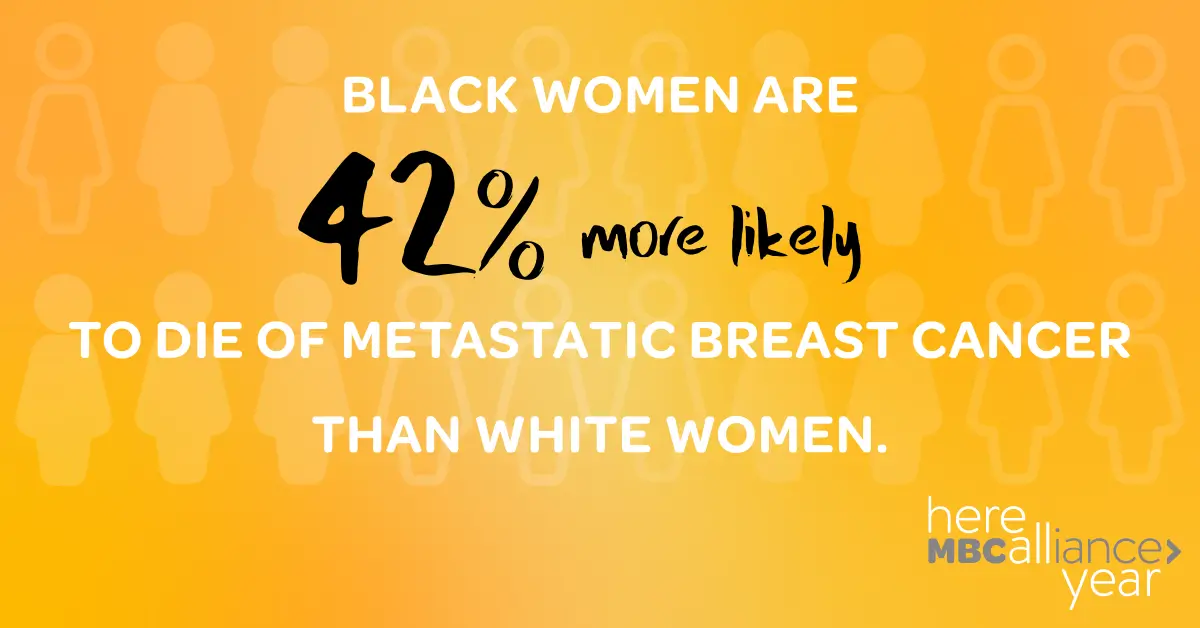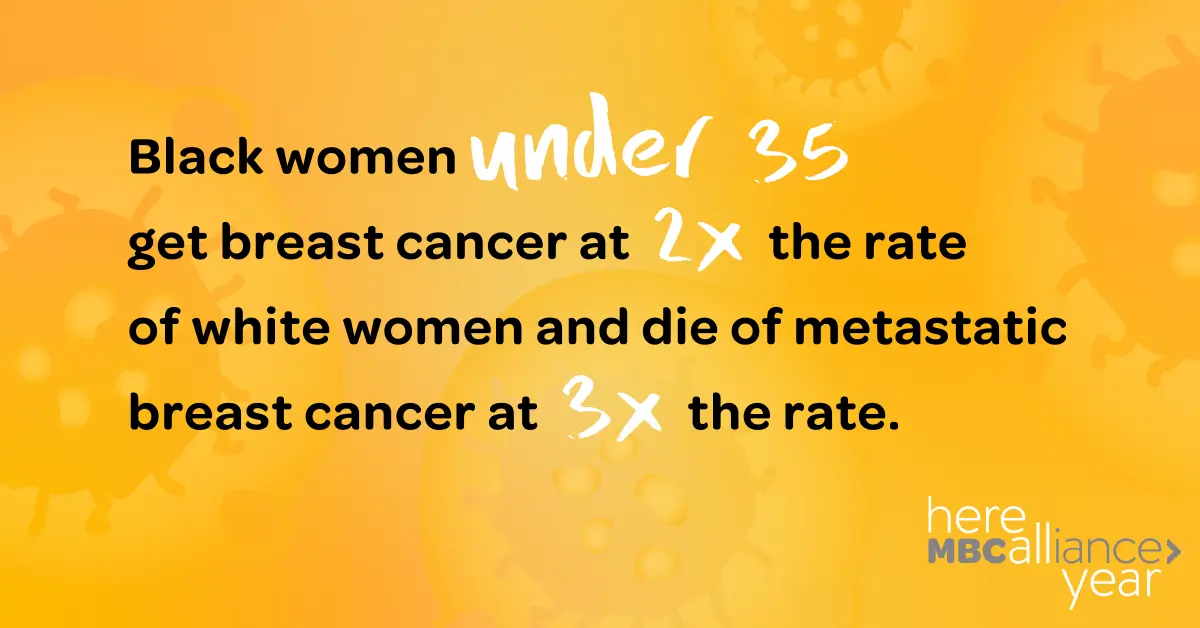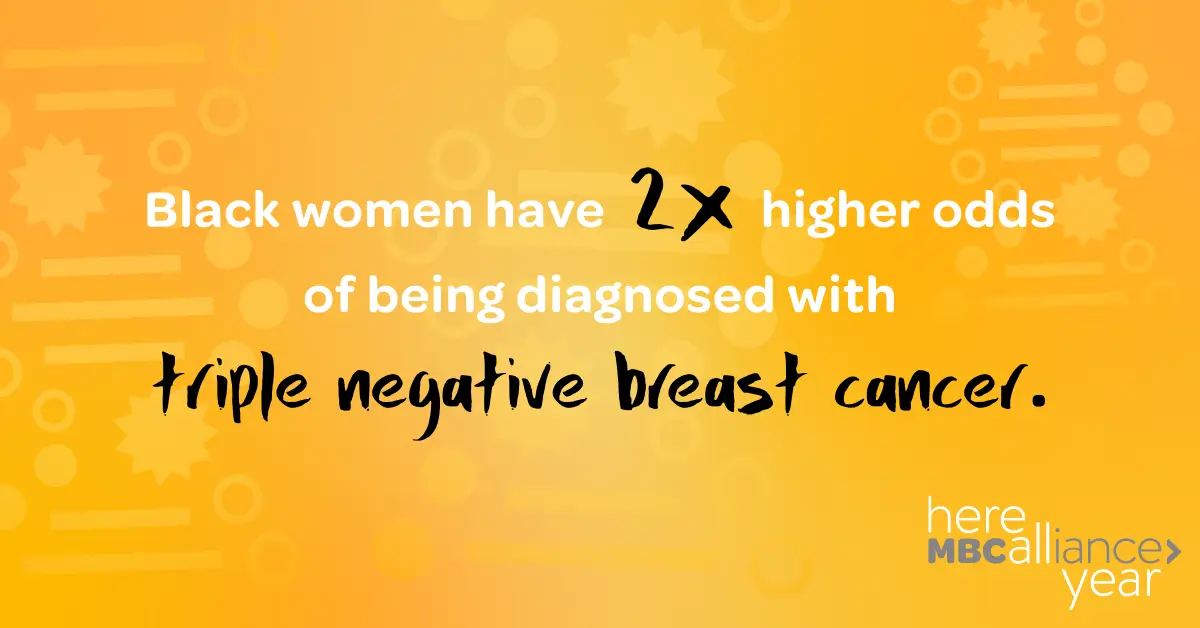Educating and Raising Awareness of MBC in Black Women
This month, we’re raising awareness about Metastatic Breast Cancer in Black women and the way this disease disproportionately affects women of color. Black women are more likely to be diagnosed with and die from MBC than white women. We’re raising awareness about this disparity by sharing the stories of two Black women living with MBC and circulating infographics that bring attention to the stark difference in health outcomes between Black and white women with MBC.





